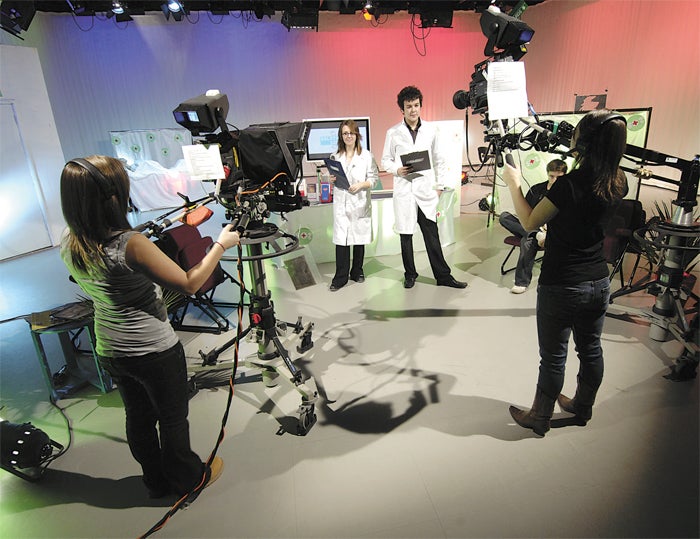Media production: focus on your future

Your support helps us to tell the story
From reproductive rights to climate change to Big Tech, The Independent is on the ground when the story is developing. Whether it's investigating the financials of Elon Musk's pro-Trump PAC or producing our latest documentary, 'The A Word', which shines a light on the American women fighting for reproductive rights, we know how important it is to parse out the facts from the messaging.
At such a critical moment in US history, we need reporters on the ground. Your donation allows us to keep sending journalists to speak to both sides of the story.
The Independent is trusted by Americans across the entire political spectrum. And unlike many other quality news outlets, we choose not to lock Americans out of our reporting and analysis with paywalls. We believe quality journalism should be available to everyone, paid for by those who can afford it.
Your support makes all the difference.A media production degree will give you a solid grounding in the industry, says David Sleight.
Media production has become a hugely important and dynamic area because of the increasing use of digital options in the industry. All the original mediums of film, television and radio have become available in digital format; these new areas require talented media production graduates with a whole new set of skills.
Media education in the UK is in rude health. In its 2006 employment survey, Skillset – the Sector Skills Council for Creative Media – discovered that of people who have joined the media industry since 2004, 83 per cent hold a degree (compared with just 52 per cent who joined the industry before 1990) and a significant 44 per cent of those employees hold media degrees.
Every walk of life is now supported by media activity in numerous forms. The Office of Communications (Ofcom), which regulates the communications industry in the UK, did a communication review in 2007. In it they announced that the average UK adult cumulatively consumes seven hours of media per day: watching and listening to programmes, web browsing and using communication devices. This, in turn, is creating a climate where the industry constantly has to produce more content for the consumer. As a result, the creative sector has grown at twice the rate of any other in the UK economy.
Universities need to stimulate, develop and adapt to using new technologies within the creative industry. The knowledge gained by studying a media production degree allows students to deploy the appropriate knowledge at the right moment. A broad base of knowledge – such as studying television, radio and single-camera production – is the key to the future, but students also need to know about photography, imaging and other digital media, animation and design. In a world where creative content will be shared by so many different distribution platforms, it is essential to learn about and understand all aspects of media production to improve the prospects of a graduate’s career in what is a fast-moving industry.
Copyright is another important issue for media creatives, especially in the context of internet file sharing. Ofcom research shows that 49 per cent of children aged 12-15 in the UK have downloaded online content, and the majority hold a strong perception that this should be a free service. Media students need to understand just how important royalty and revenue payment structures are in underpinning the creative economy, and most importantly that their livelihoods may well depend on them in the future.
The entry requirements for a degree in media production vary between 120 and 280 Ucas points, depending on the institution you apply to. Assessment is generally through a combination of coursework, exams and project work, with teaching in the form of lectures, seminars, tutorials, workshops and film screenings.
Graduates come out of a course in media production with the theoretical and practical skills to apply for careers in television, radio, film, digital media and commerce as producers, analysts and designers.
Transferable skills can also be applied to all sorts of jobs in the creative industries, and of course there is always the option of postgraduate study to build further on the skills that have already been developed.
Where journalists report the world, media production students creatively interpret the world they find through both fictional and factual methods. They use a wide array of production techniques to help convey meaning and foster emotion. The knowledge gained by studying a media production degree allows students to deploy the appropriate knowledge at the right moment when they find a job after graduation. Each year, approximately 60 universities make entries into the Royal Television Society Student Television Awards.
To sit through a screening of the winners is to glimpse the media we will inherit from the next bunch of blisteringly talented, creative – and hopefully, properly rewarded – media producers.
- David Sleight is a senior academic in media production at the University of Lincoln, www.lincoln.ac.uk
Join our commenting forum
Join thought-provoking conversations, follow other Independent readers and see their replies
Comments